The Best Books to Help Heal Your Marriage
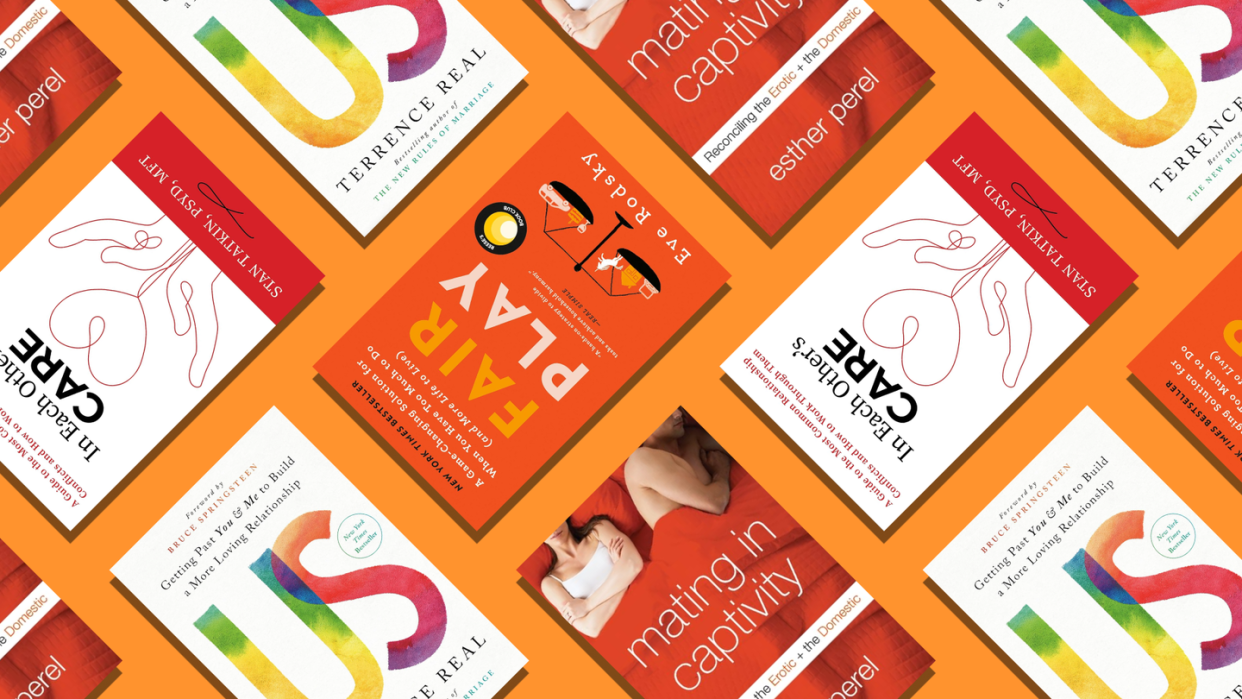
- Oops!Something went wrong.Please try again later.
- Oops!Something went wrong.Please try again later.
"Hearst Magazines and Yahoo may earn commission or revenue on some items through these links."
The New Year offers a time to reflect on the past and make resolutions for a better future. With the stress of the holidays behind you, now is the perfect chance to rekindle your connection with your spouse. If you’re still quietly fuming about the fact that, yet again, you were left responsible for both making the list and checking it twice this year, we’ve got a perfect guide to redistributing the invisible labor in a marriage. Maybe you are looking for strategies to voice your anger or to stop having that exact same fight over and over again. Elise Loehnen’s book selection offer actionable and thoughtful guidance for all sorts of marital distress, from healing from infidelity to getting your spouse to load the dishwasher correctly. Read on, and let the healing begin!
A Good Apology, by Molly Howes, PhD
Good marriages don’t escape conflict—instead, they endure during harder times because the partners are capable of making a repair. Typically, this is a skill that must be developed: Making amends is not something we’re necessarily equipped to do from birth, which makes psychologist Molly Howes’s guide particularly essential. A Good Apology explores workplace tension, social justice, and friendship as well—effectively anyplace where we might cause offense, or find ourselves affronted, including at home. What Howes ultimately coaches is how to listen without rushing for redemption. “On any scale, the skill of listening to and honoring someone else’s experience can be challenging,” she writes. "When a patient of mine was telling her husband about how he had hurt her, he kept giving her explanations. She finally said, ‘You don’t get to talk. I’m simply hurt.’…She later told me, ‘It took him two days to see that I didn’t want him to say “I’m sorry.” I wanted him to know how it feels to be me.’” To that end, Howes advocates a multi-step process during which attempts for repair must be “grounded in their experience.” This takes the following retorts right off the table: I’m sorry, but; I’m sorry if; I’m sorry that; It’s not my fault; I didn’t mean it; I’m sorry that you see it that way; and vagueness. And thus begins the road to repair and relational resilience.
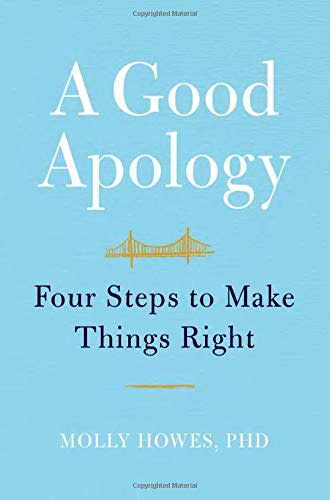
A Good Apology, by Molly Howes, PhD
amazon.com
The Dance of Anger, by Harriet Lerner, PhD
First published in 1985, psychologist Harriet Lerner’s book is an enduring classic, and in many ways, a precursor to the spate of excellent tomes on setting and maintaining boundaries—Set Boundaries, Find Peace, by Nedra Glover Tawwab, and The Book of Boundaries, by Melissa Urban, being two. While things have theoretically gotten better in the past 40 years, most of the pages still stand up, pointing to our fear of the loss of relationship as one of the main reasons we suppress our resentment and frustration. As she writes, “The more we are ‘nice’ in these ways, the more we accumulate a storehouse of unconscious anger and rage. Anger is inevitable when our lives consist of giving in and going along; when we assume responsibility for other people’s feelings and reactions; when we relinquish our primary responsibility to proceed with our own growth and ensure the quality of our own lives; when we behave as if having a relationship is more important than having a self.” When we behave as if having a relationship is more important than having a self. The beauty of The Dance of Anger is that Lerner doesn’t just leave us there, offering tools and support for beginning to tap into, and then express how you feel, but it’s a powerful read, one that might bid you into action. And as we all know, change is hard.
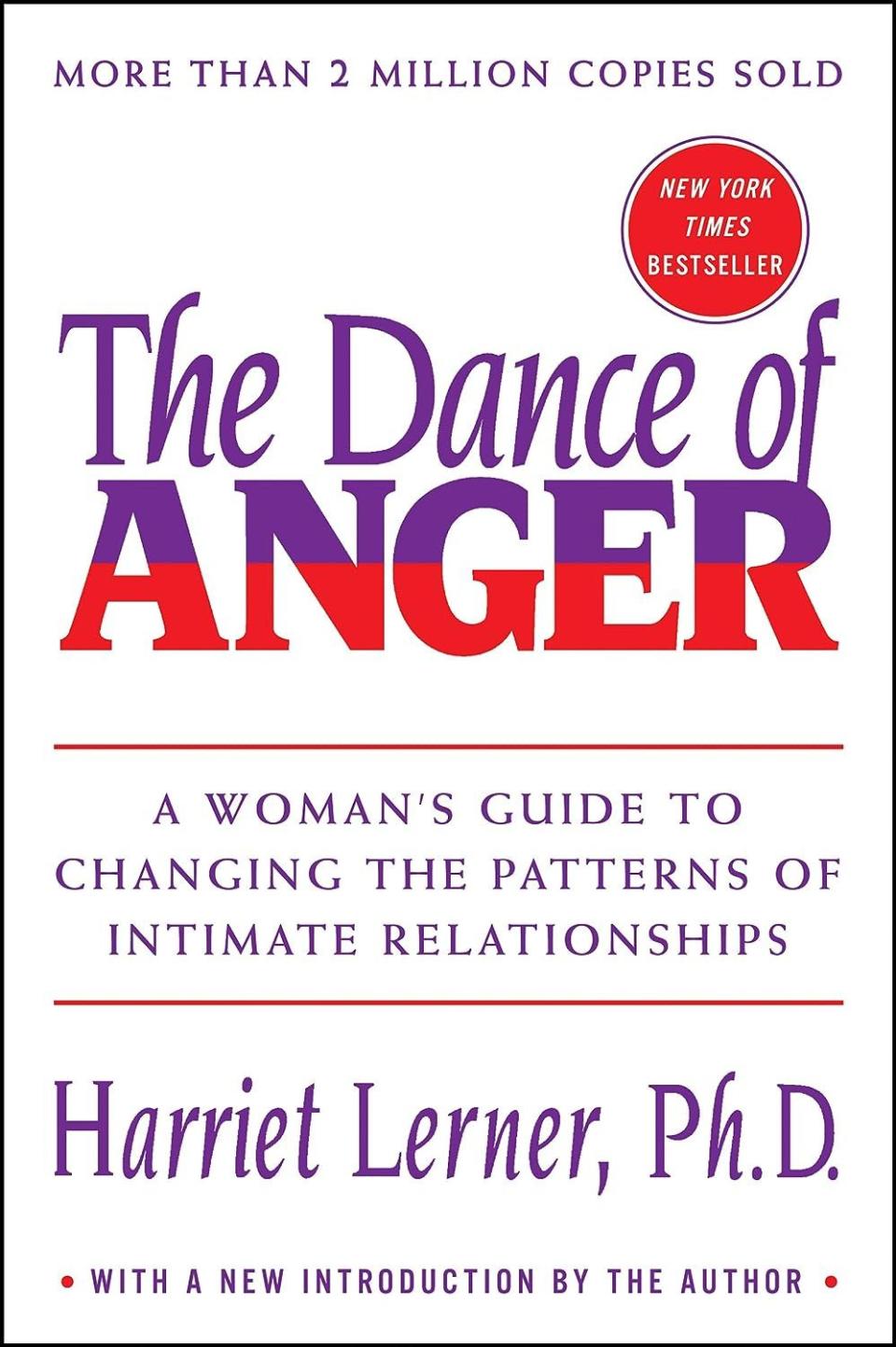
The Dance of Anger, by Harriet Lerner, PhD
bookshop.org
Fair Play, by Eve Rodsky
In 2019, right before Covid, Eve Rodsky distilled the daily tasks of life into a book and later a game—one that’s not particularly fun but is potentially eye opening, particularly for the partner who is blissfully unaware of the invisible labor that drives most marriages. This invisible labor ensures there’s toilet paper, and clean laundry, and a rental car reservation at the other end of vacation flights. This invisible labor recognizes that meals do not magically appear: They must be planned, shopped for, made, and cleaned. In hetero relationships, it’s often the woman who carries these burdens, often without acknowledgment. (And this doesn’t have much to do with who is, or is not, working outside the home—or who is the primary breadwinner.) In Rodsky’s system, every component task is articulated and put on the table, so they can be seen, acknowledged, and then more equitably divvied up. Even if you don’t see this process through to completion, these are important conversations that every functioning partnership needs to have before resentment brings relationships to their knees.
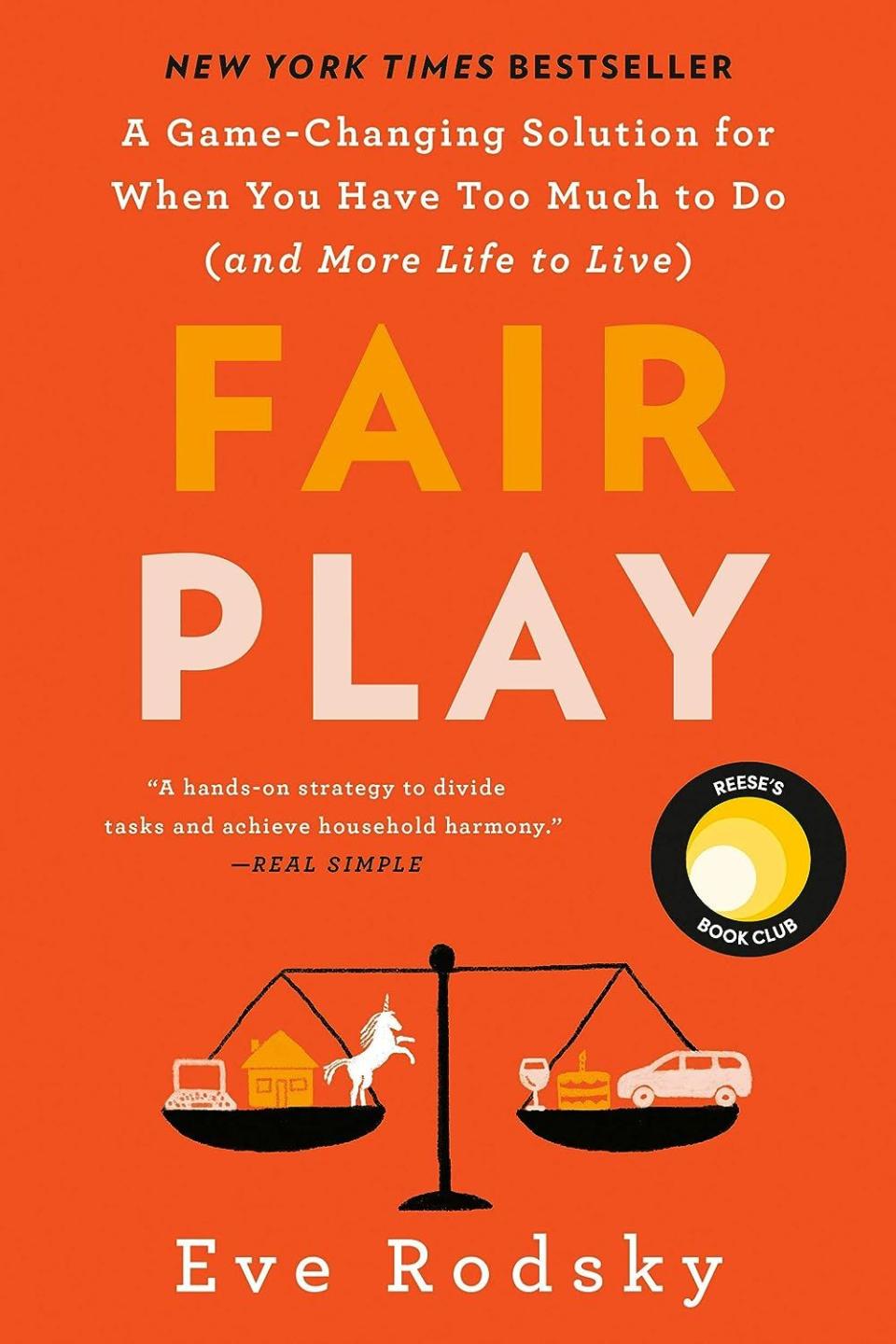
Fair Play, by Eve Rodsky
bookshop.org
Monsters in Love, by Resmaa Menakem
Resmaa Menakem’s work primarily revolves around the emotional legacy of culture—his 2017 New York Times bestseller, My Grandmother’s Hands, addresses how racialized trauma lives on in our bodies. To that end, Monsters in Love (originally published in 2015 as Rock the Boat) acknowledges that all relationships live in a larger context, and that social and political forces are always at place, even in the relative privacy of our homes. Menakem is a licensed clinical social worker, a divorce and family mediator, and a frequent facilitator for high-conflict organizations like the Minneapolis Police Department and the military: He’s seen some tough stuff. In his latest book, he pushes against a prevailing principle in relationship theory—one that posits peace is the best path. He believes conflict is not only inevitable but essential and that the best relationships are those that can hold a lot of hard stuff. As he writes, “A strong partnership isn’t always about keeping your boat as stable as possible and keeping you and your partner aligned. It’s also about staying present and upright when the wind and waves are tossing you around. When it comes to matters of integrity, there will be times when you need to rock the boat—or let it rock you. And sometimes, in the worst of storms, when your boat is being tossed about, trying to keep it stable can actually sink it.” Filled with case studies from his psychotherapy practice as well as what he calls compass points, or universal truths, Menakem puts on the page what most of us would be scared to admit, like this one: “Hatred exists in all loving long-term relationships. Part of growing up is acknowledging this hatred. If you don’t acknowledge the occasional hatred, it will show up in some other, nastier, unexamined form.”
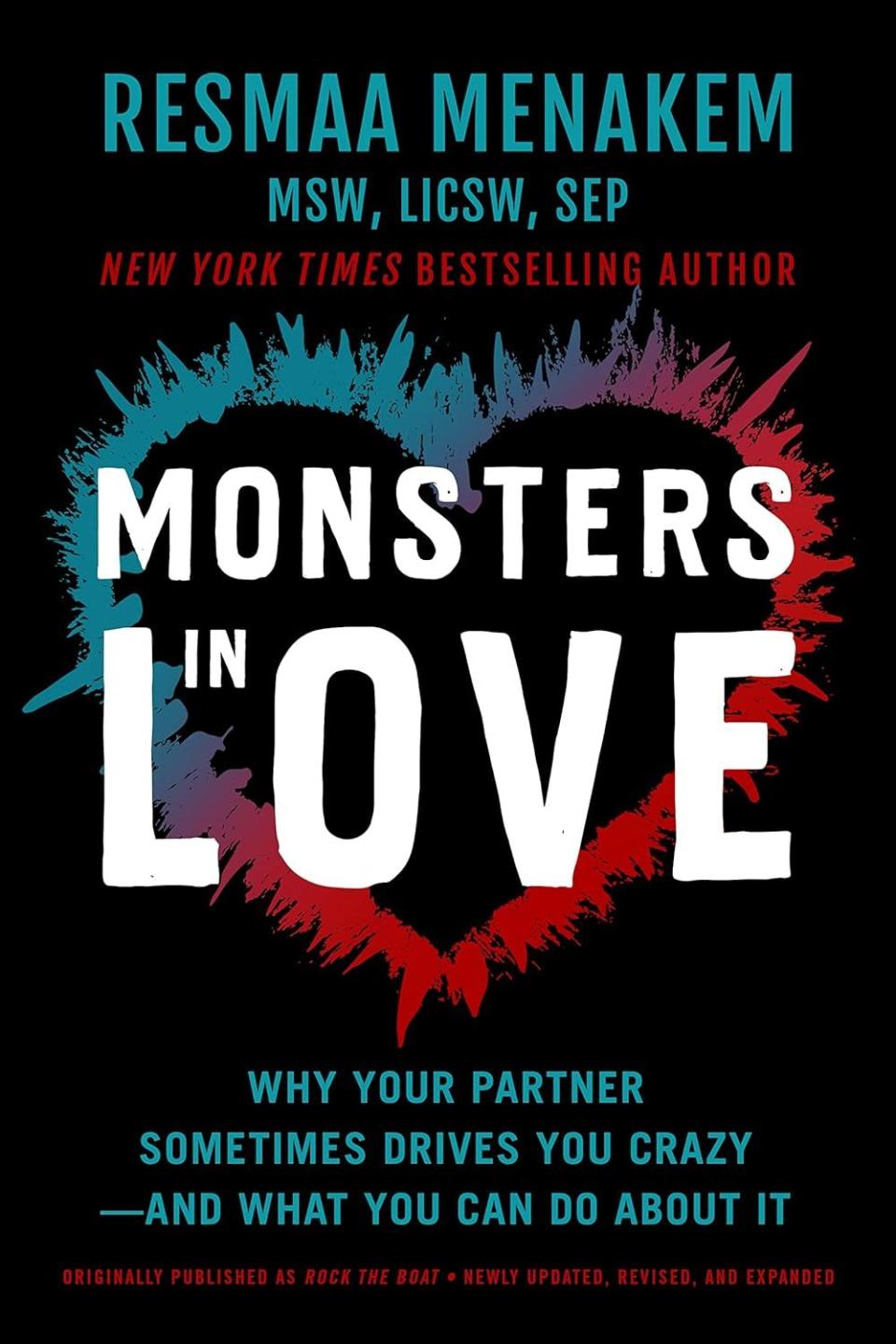
Monsters in Love, by Resmaa Menakem
bookshop.org
Nonviolent Communication, by Marshall B. Rosenberg, PhD
Marshall Rosenberg died in 2015, though his legacy endures. Rosenberg was a negotiator in high-conflict situations around the globe, where he learned to coach people to peaceful resolution in situations that seemed dire. His foundational ideas translate to the interpersonal realm because he holds the principles are the same: We struggle to express our emotions, and our dominance-based (i.e. violent) language does not help. From there, it all begins to go off the rails into escalation and threat. Rosenberg asserts that our culture is also coded with fear of responsibility and an instinct to blame—whether the blame is leveled at our partner or children for making us behave in a certain way (“I hit my child because he ran into the street”), or social forces that push us to do things we don’t want to do (“I hate going to work, but I do it because I am a husband and a father”). In Nonviolent Communication, he’s ultimately coaching us all to take fully responsibility for ourselves on a path to what he calls “emotional liberation.” This means we must take responsibility for our feelings and for expressing our needs without taking responsibility for the feelings and needs of others. Part of this requires getting under the hood of why we do what we do, and whether our actions are driven by choice and want. The results can be quite shocking: Most of us live our lives driven by acts we do because we feel we have to. In Rosenberg’s view, we do them: “1. For money. 2. For approval. 3. To escape punishment. 4. To avoid shame. 5. To avoid guilt. 6. To satisfy a sense of duty.” Acknowledging this as a primary source of anger and resentment and taking responsibility allows us to reconfigure our lives and our relationships.
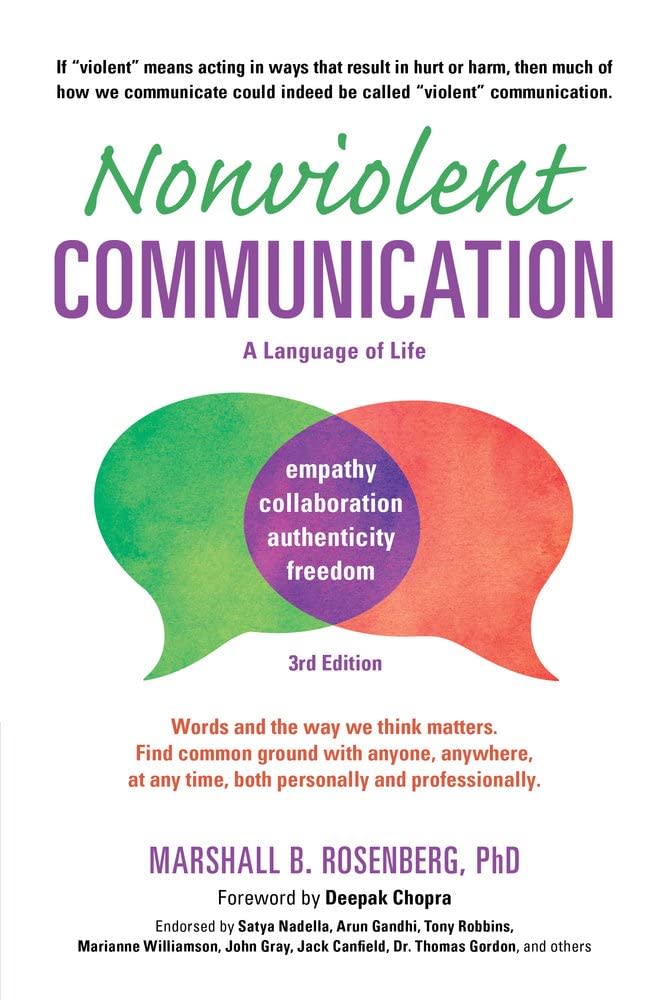
Nonviolent Communication, by Marshall B. Rosenberg, PhD
amazon.com
Mating in Captivity, by Esther Perel
Marital indiscretions aren’t uncommon—and while they’re typically cast as marriage-ending, most relationships actually survive. This is true particularly when the couple in question embraces the disruption as a “dark night of the soul” and gets to work on repair. This is therapist Esther Perel’s sweet spot, and the focus of much of her work—specifically, why someone might be adulterous. While this might sound like it applies only to couples who have trouble with this issue, Perel’s work is more subtle and sensitive than that, as she teases apart the difference between intimacy and desire. In Mating in Captivity, she writes: “For some of us, love and desire are inseparable. But for many others, emotional intimacy inhibits erotic expression. The caring, protective elements that foster love often block the unselfconsciousness that fuels erotic pleasure.” When she works with couples, Perel leads them through a number of activities, including one where she has them commit to paper what they think of when they conjure love versus desire—and then she can look for congruencies, or not. Perel speaks into the nuance of who we all are and its inherent messiness—mess that can’t always be corralled into a “traditional,” stable marriage. But the more we allow for the mystery of the other, the better off we might do. As she writes, “The grand illusion of committed love is that we think our partners are ours. In truth, their separateness is unassailable, and their mystery is forever ungraspable. As soon as we can begin to acknowledge this, sustained desire becomes a real possibility. It’s remarkable to me how a sudden threat to the status quo (an affair, an infatuation, a prolonged absence, or even a really good fight) can suddenly ignite desire. There’s nothing like the fear of loss to make those old shoes look new again.”
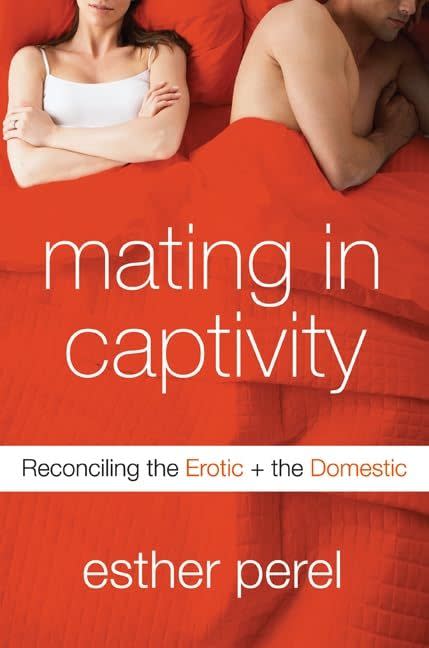
Mating in Captivity, by Esther Perel
bookshop.org
Us, by Terrence Real
Legend has it that couples on the brink of divorce head into an intensive boot camp with Terry Real and emerge reengaged—his specialty, more specifically, is in working with hard-to-reach men, particularly those who might be struggling with covert depression. (His first book, I Don’t Want to Talk About It, is a classic in this field.) Unlike most therapists, Real actively takes sides during therapy—time is of the essence, after all—and is willing to point out when elements like grandiosity or harshness are at play. While he’s written many books, his latest—Us—offers a masterclass in his methods, which ultimately comes down to a core question: “Which part of you am I talking to?” Much of what he sees in therapy emerges out of undiagnosed patterns of behavior from childhood. When one patterns does emerge, Real typically leads clients through three questions: “Who did you see do this?” “Who did it to you?” And finally, “Who did you do it to and no one stopped you?” As he describes, “Maturity comes when we tend to our inner children and don’t inflict them on our partners to care for.”
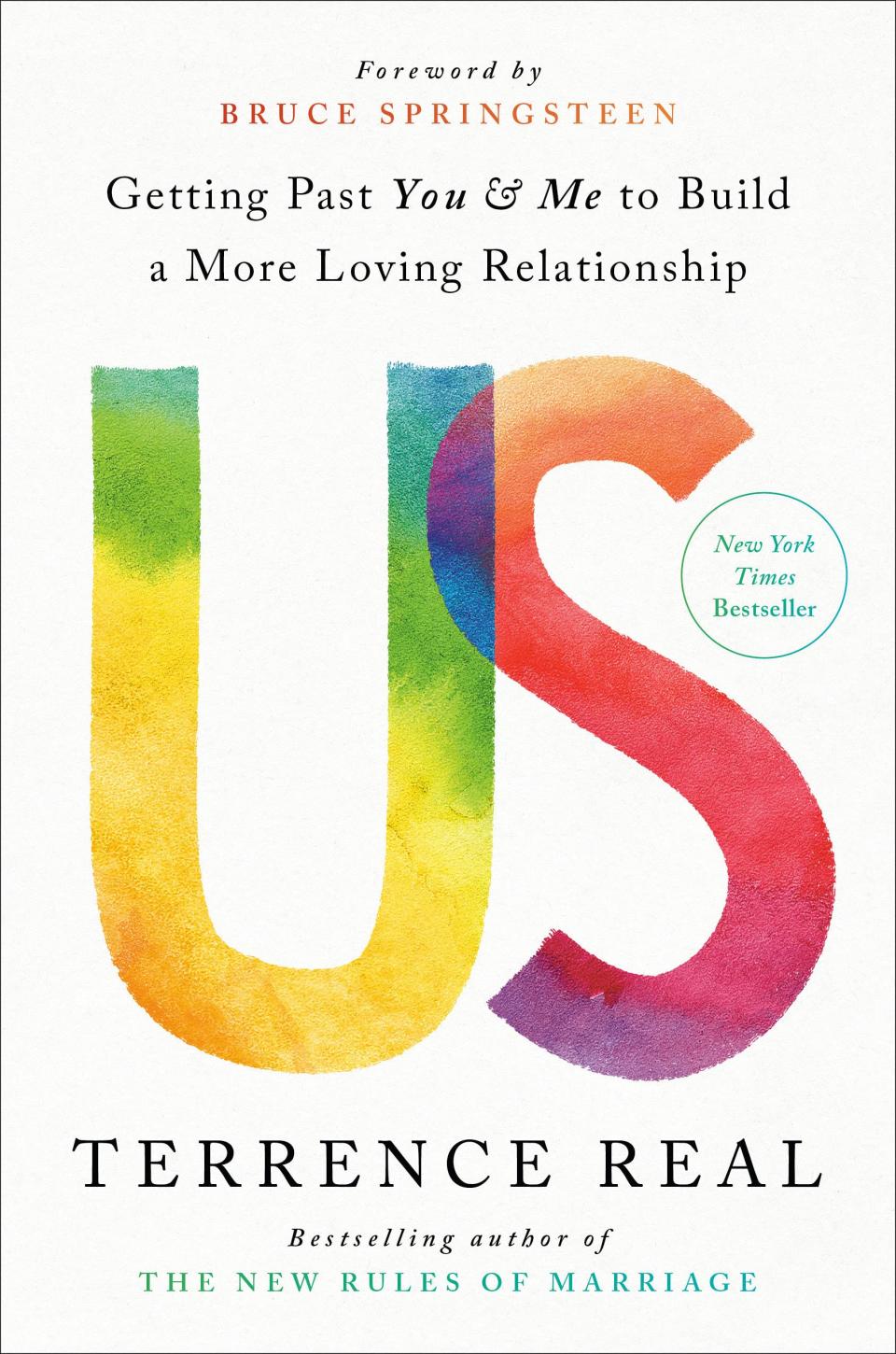
Us, by Terrence Real
amazon.com
In Each Other’s Care, by Stan Tatkin
Fans of attachment theory will love anything Stan Tatkin writes—he also still sees couples, typically in an intensive way (a few visits that are few hours each). While most of us are familiar with the basic styles—avoidant, anxious, secure—Tatkin looks for the nuance in the interaction, asking questions that really drill into how couples learned to receive love in childhood. (Questions include: “Did your parents play with you, and if so, did they enter your world, or did you enter theirs?” Or “What happened when you were sick?”) Then, if you’re lucky enough to be under his care, he puts couples on videotape and sends them into a typical conflict—so that he can play it back after the fact and point out what’s happening in your body. (Shoulders might go up and heads go down; some people start talking and can’t stop; etc.) He distills much of his wisdom into his latest book, In Each Other’s Care, where he suggests that the primary culprit in the demise of most relationships is “The Interaction”: “I have come to recognize—over many years of studying my own and other relationships—that microaggressions expressed and perceived during stressful interpersonal interactions are a leading cause of coregulatory dysfunction in couples and eventual relationship dissolution.” Yes, he’s an academic, but his book also offers tools and illustrations that show you how to relate better—in every conceivable sphere.
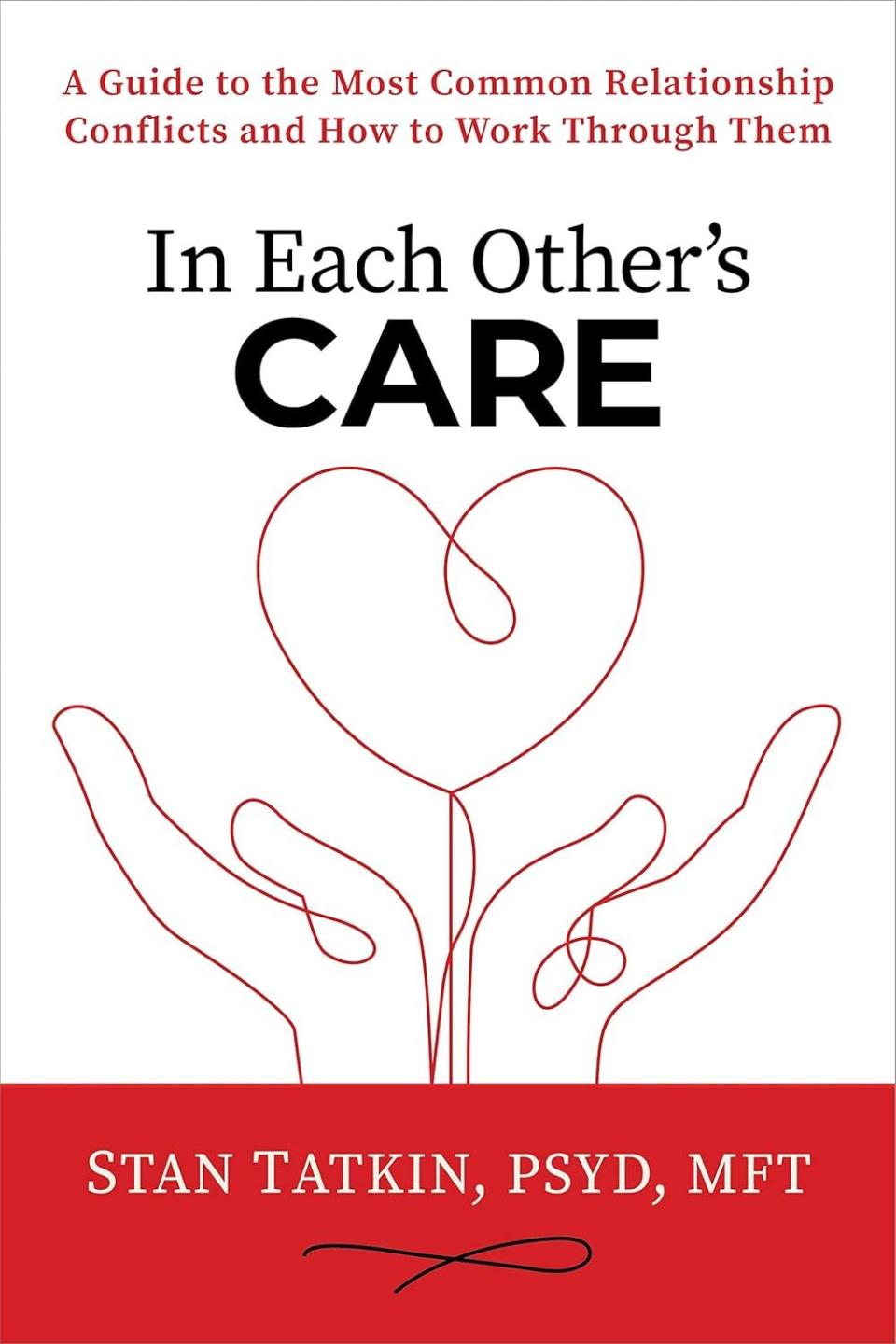
In Each Other’s Care, by Stan Tatkin
bookshop.org
$28.82
The Seven Principles for Making Marriage Work, by John M. Gottman, PhD, and Nan Silver
Arguably the most famous marriage therapist in the country, John Gottman not only coaches twosomes—he and his wife and fellow counselor, Julie Gottman, take on hundreds of couples at a time in weekend workshops that can be transformative. John Gottman rose to preeminence by establishing a “Love Lab” with Robert Levenson at the University of Washington, where they observed couples for days, documenting the number of times they bid for each other’s attention, turned toward, and turned away from each other, and more. From these findings, they were able to determine—with the startling accuracy of more than 90 percent—who was destined for divorce. The upside of the Gottmans’ approach is that it’s not rocket science and it’s not complex—it simply requires ongoing interventions where you continue to turn toward and engage your partner, rather than icing them out. The married pair recently published The Love Prescription, which breaks their theories into basic practices, though if you want the full Gottman treatment, I highly recommend The Seven Principles for Making Marriage Work, which John wrote with journalist and author Nan Silver.
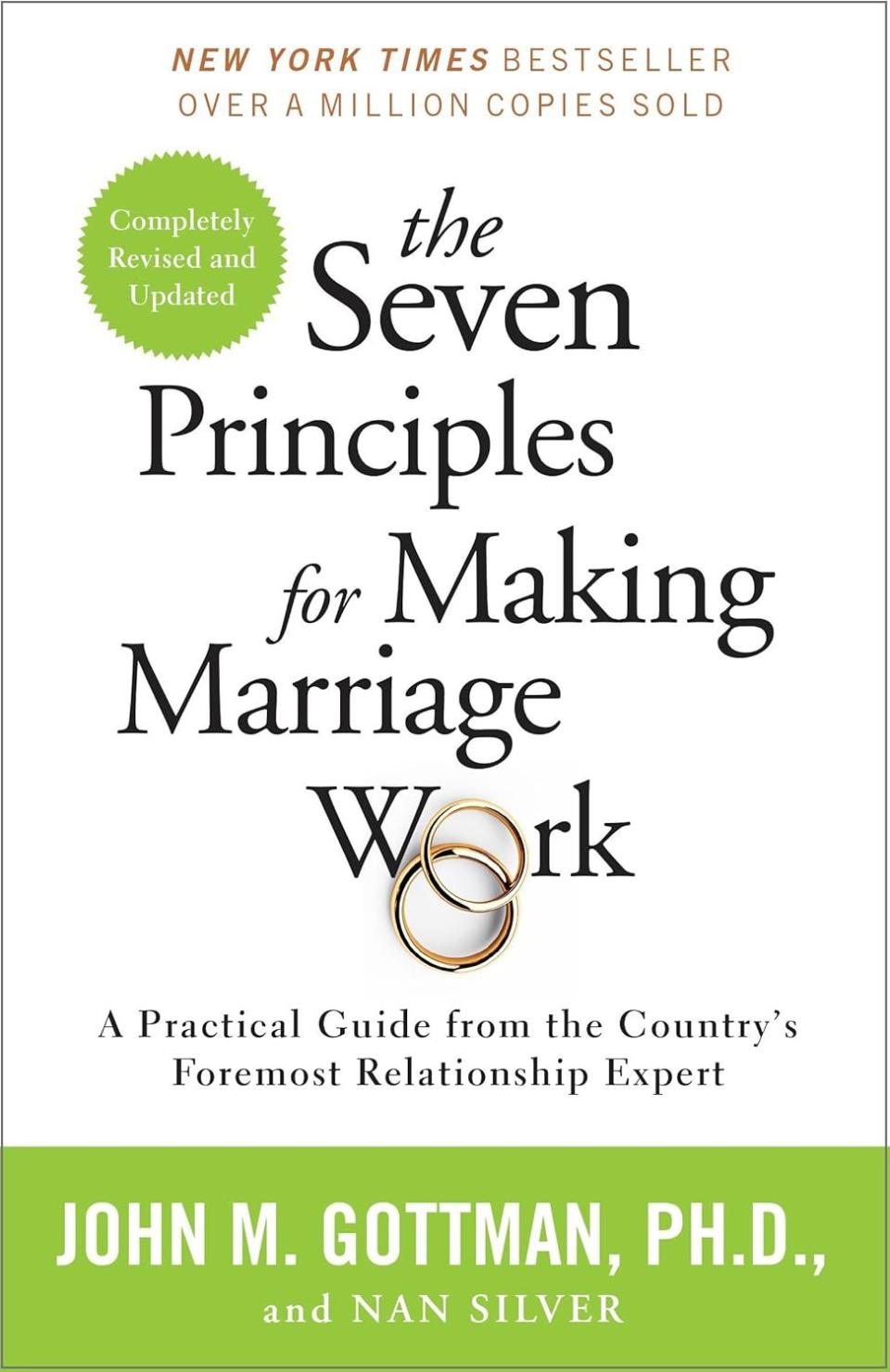
The Seven Principles for Making Marriage Work, by John M. Gottman, PhD, and Nan Silver
bookshop.org
You Might Also Like

